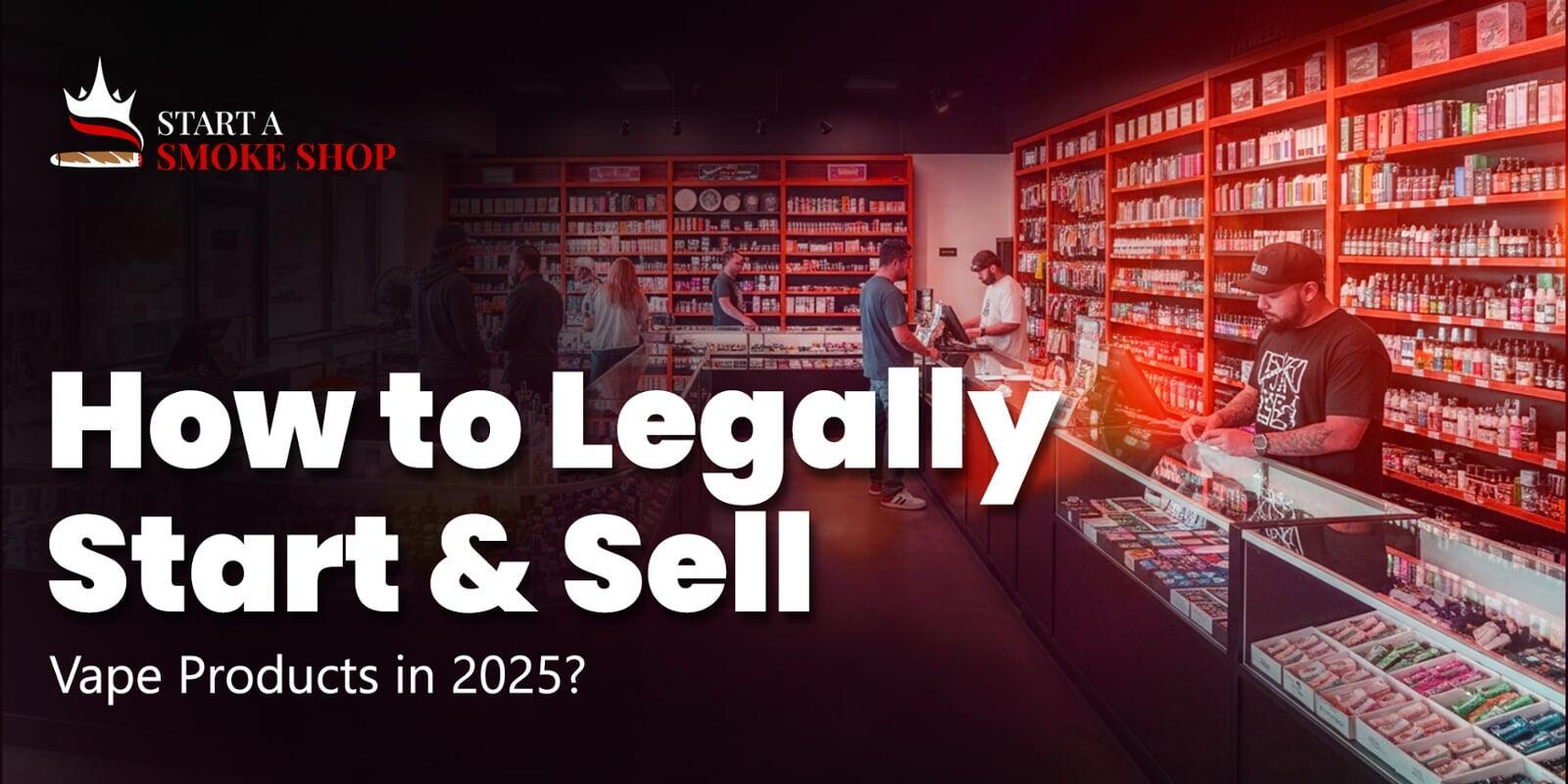
How to Legally Start and Sell Vape Products in 2025
With so many people converting from traditional cigarettes to e-cigarettes, the vaping community is more popular than ever. However, if you want to get into the vape sector in 2025, it's more than just carrying the latest technologies and the most delicious flavors. You must follow the regulations, navigate a complex web of legislation, and market your company in a way that is both moral and customer friendly. Don't worry, this guide will supply you with all of the knowledge you need to legally sell vapes and run a profitable business.
1. Overview of Vape Laws in 2025
Selling vapes in 2025 means complying with local, national, and sometimes international laws. Here's what you need to know:
A. U.S. Federal Regulations
Under the Family Smoking Prevention and Tobacco Control Act, the FDA regulates vape products as tobacco products.
Premarket Tobacco Application (PMTA): All vape products must be FDA-approved before sale. Operating without approval can result in fines and seizure.
Minimum Age Requirement: Sales to individuals under 21 are illegal. Use robust age verification systems for online and retail sales.
Labeling and Packaging: Products must include health warnings, ingredient lists, and be child-resistant.
B. State and Local Laws
Each state has its own vape laws:
- Flavored vape bans in states like California and Massachusetts
- Special licensing (e.g., tobacco retailer license)
- Excise taxes on vape products
C. Environmental Responsibility
The global shift toward sustainability impacts vape laws too:
- Offer refillable or rechargeable devices
- Promote recycling options for customers
2. Setting Up a Compliant Vape Business
A. Choose a Business Structure
LLC: Offers fleibility and protects your personal assets Corporation: Ideal for businesses seeking investors Consult a legal advisor to register your business structure.
B. Get the Required Licenses
Tobacco/Vape Retail License (state-specific) General business license Sales tax permit For online sales: comply with the PACT Act and age verification laws
C. Partner with Legitimate Suppliers
Work with vendors that:
Provide PMTA-certified and FDA-compliant products Have verified safety certifications and accurate labeling Maintain consistent quality and pricing
D. Set Up Secure Payments
Vape sellers are often labeled “high-risk.” Use processors like PayKings or DigiPay to avoid disruptions.
3. Smart Marketing Without Breaking Rules
Get Creative With Advertising
Social Media: Use private, age-gated Facebook groups for discussions Email Marketing:Build a list and send educational updates Influencers: Partner with responsible vape influencers who follow legal ad guidelines
4. Final Tips and Next Steps
✔️ Stay up to date on legal changes by subscribing to regulatory updates
✔️ Build trust through transparent policies, verified products, and excellent customer service
✔️ Use analytics tools like Google Analytics and Search Console to track what’s working
Need Help Starting a Smoke or Vape Shop?
Whether you're launching a local vape shop or planning to sell online, navigating the legal and business setup can be overwhelming. That’s where we come in.
Need Help Starting a Smoke Shop? Call Now for Professional Assistance!
We’ll guide you through licensing, compliance, suppliers, and more — so you can focus on growing your business.
Disclaimer: The information provided is for educational purposes only. Always consult federal, state, and local regulations before starting a smoke shop to ensure full compliance with tobacco, vaping, and hemp product laws.